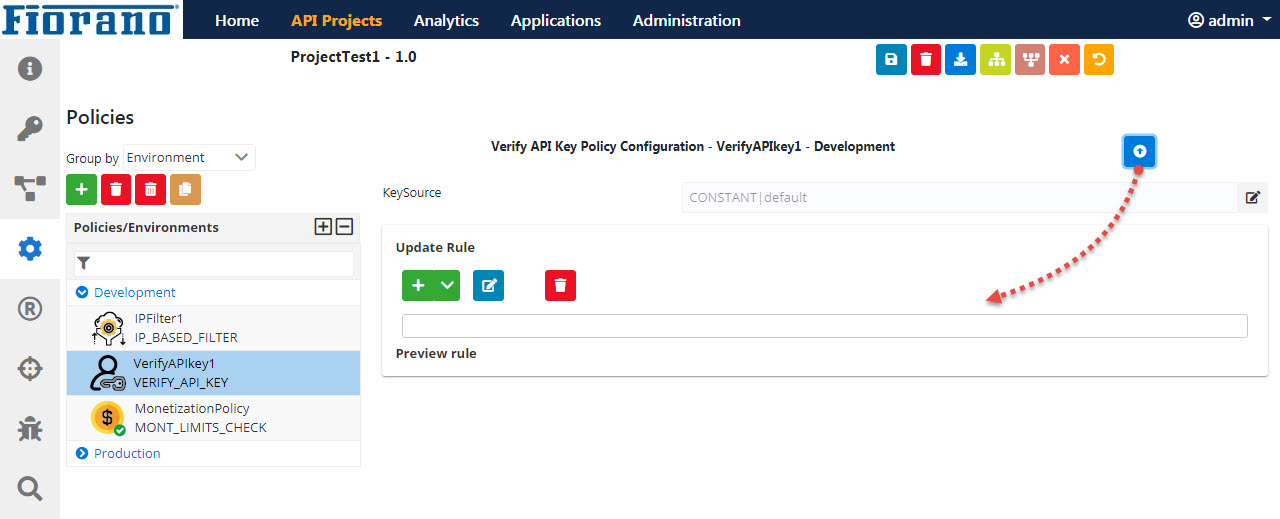Policies can be created as per the requirements of the project. Based on these policies, a request/response from a client is scrutinized.
Adding a Policy
Click the Add ![]() icon on the upper-right side of the Policies screen to add a new policy and choose any one of the following.
icon on the upper-right side of the Policies screen to add a new policy and choose any one of the following.
- Choose From Repository: To choose a policy from the Policy Repository.
- Create a Policy: To create a new policy, select a policy from the list of policies in the Policy Type drop-down.
Click the policy again to switch the policy configuration screen to configure a policy.
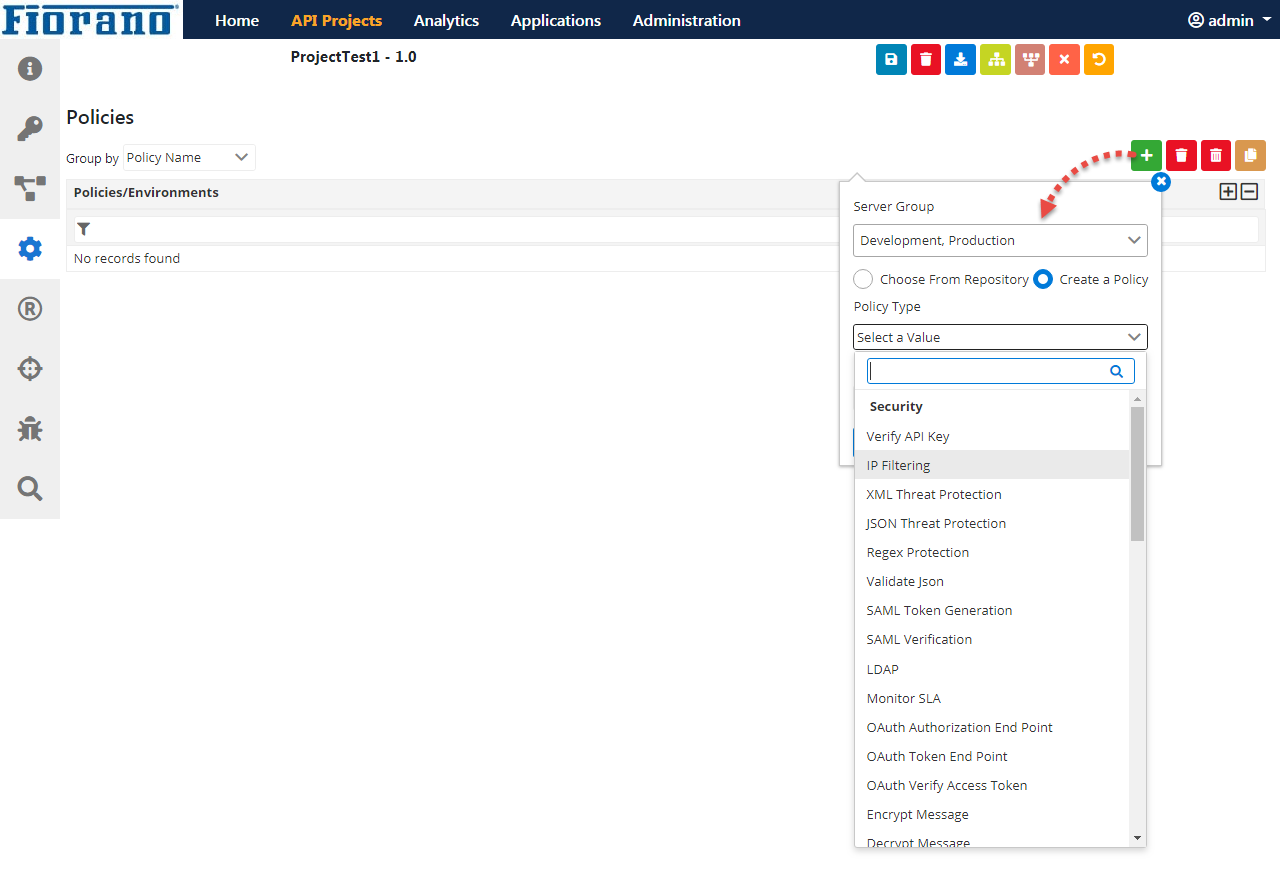
Grouping by Policy Name / Environment
With multiple policies in the Policies/Environments section, policies can be filtered based on the policy name or environment.
Grouping by Policy Name
Select "Policy Name" option from the Group by drop-down to display policies by their respective names.
Expand each policy name to see the environments in which each policy is added. Click the name of the environment to configure the policy on that environment.
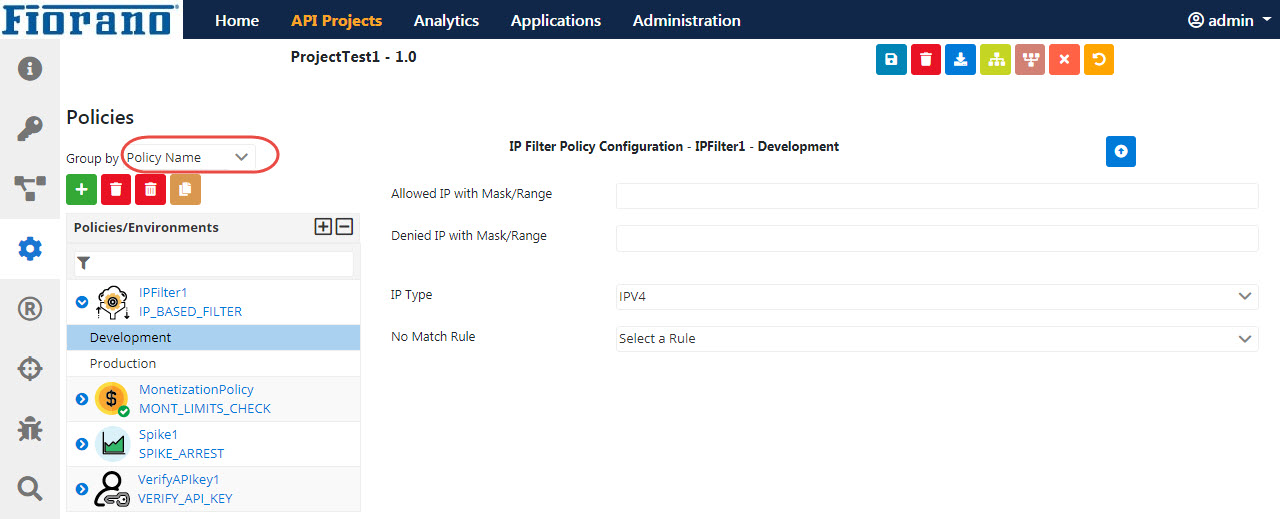
Click the Plus ![]() icon to expand all policies.
icon to expand all policies.
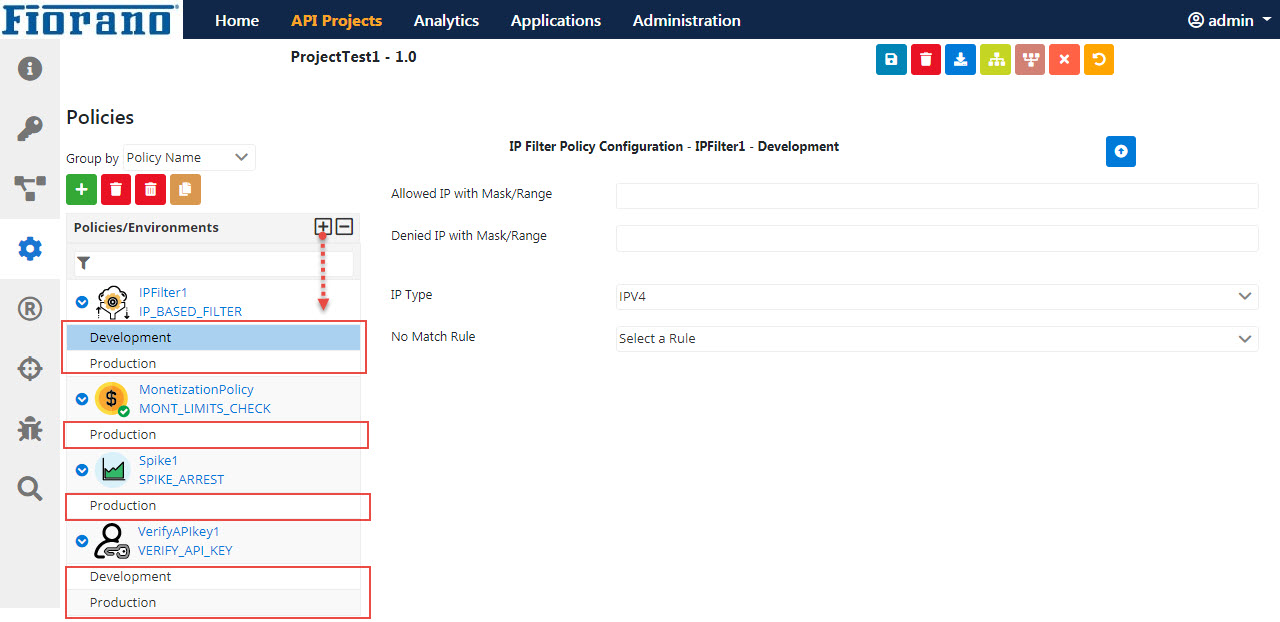
Grouping by Environment
Select "Environment" option from the Group by drop-down to display Server Groups where policies are added.
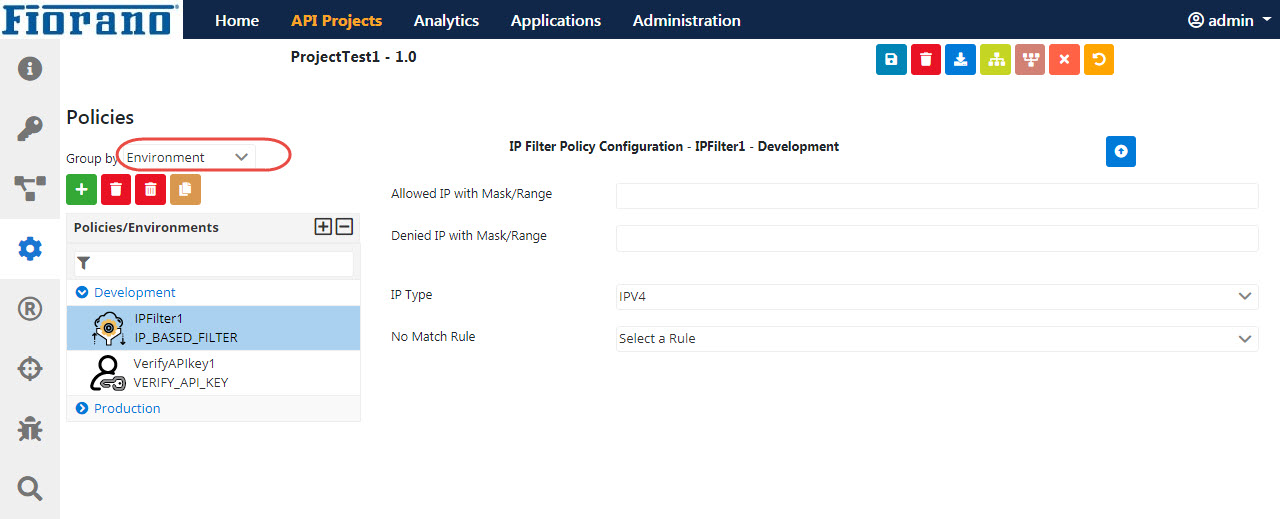
Click the Plus ![]() icon to expand all Server Groups and policies under it.
icon to expand all Server Groups and policies under it.
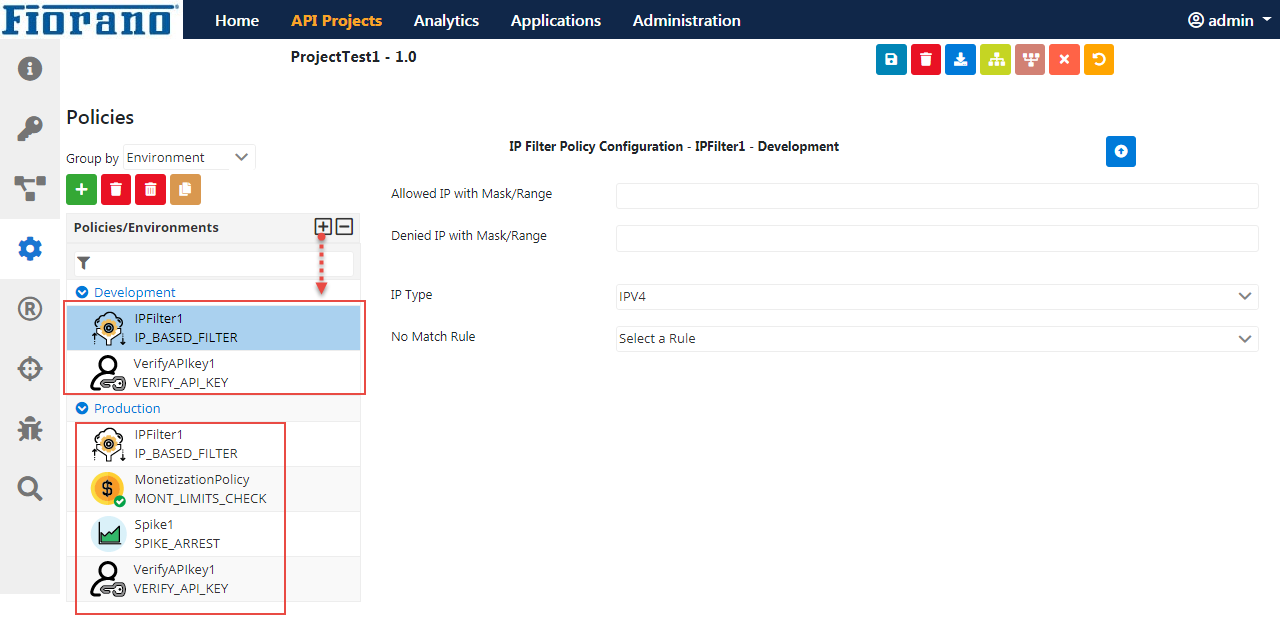
List of Policies, configuration and attaching to resources
Fiorano API Policies are described in the following sections:
A policy can be attached to any of the request/response resource endpoints. Refer to the below sections for step by step instructions for the respective tasks:
Configuring Rules for a Policy
Copying policies from one environment to another
- Click the Copy icon present at the upper-right part of the Policies screen.
- Select the environment from and to which the policies need to be copied
- Select the policies and click OK.
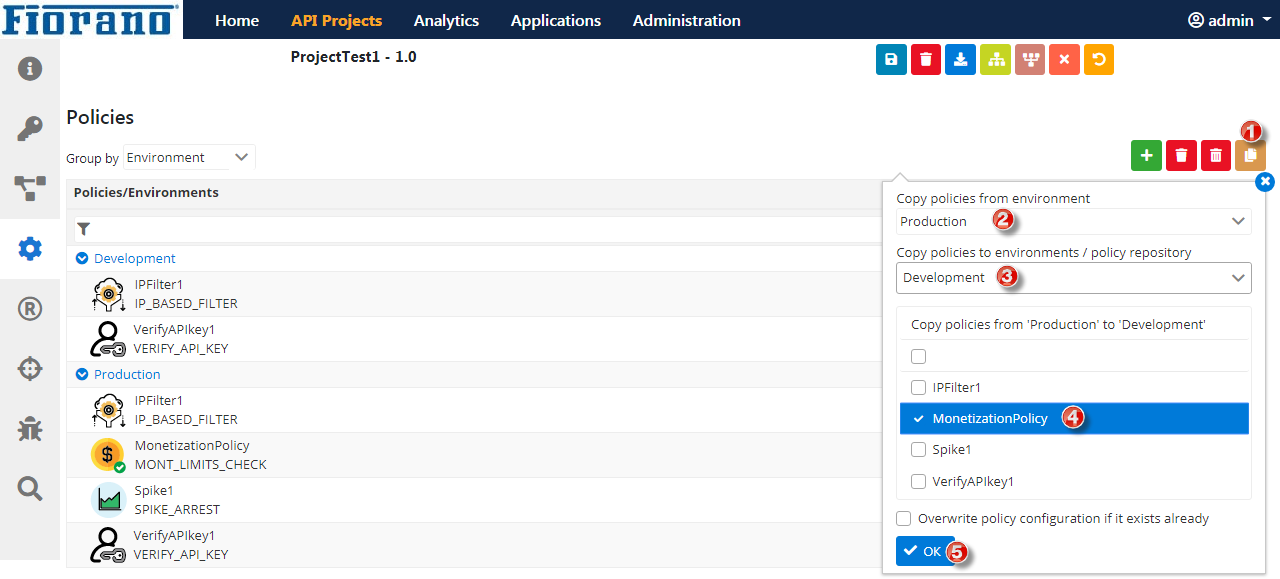
- The name of the environment to which the poicy is copied appears under the policy which is copied.
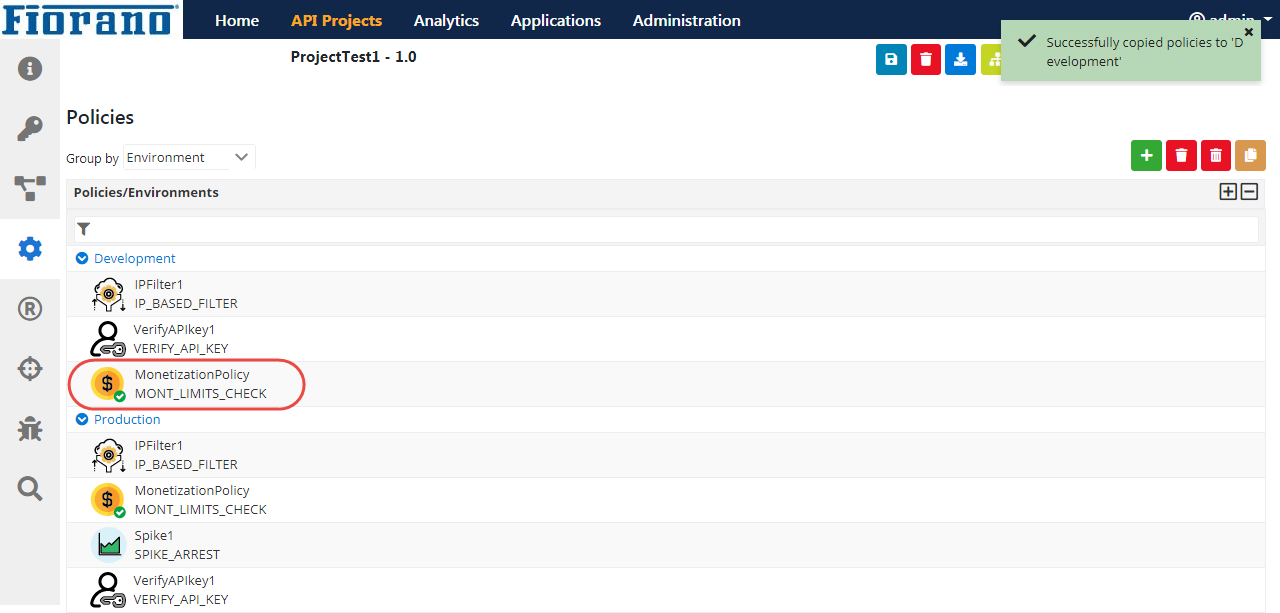
- Click Save to save the changes
Removing Policies
Removing a policy
Expand the environment from which the policy needs to be removed and select the polcy (or expand the policy name and select the particular environment from which the policy needs to be removed) and click the Remove ![]() icon to remove the policy.
icon to remove the policy.

Removing multiple policies
Click the Remove Multiple ![]() icon that is present between the Remove and Copy icons to select the policies removed from the list of policies and click the Delete selected policies button to remove the selected policies.
icon that is present between the Remove and Copy icons to select the policies removed from the list of policies and click the Delete selected policies button to remove the selected policies.
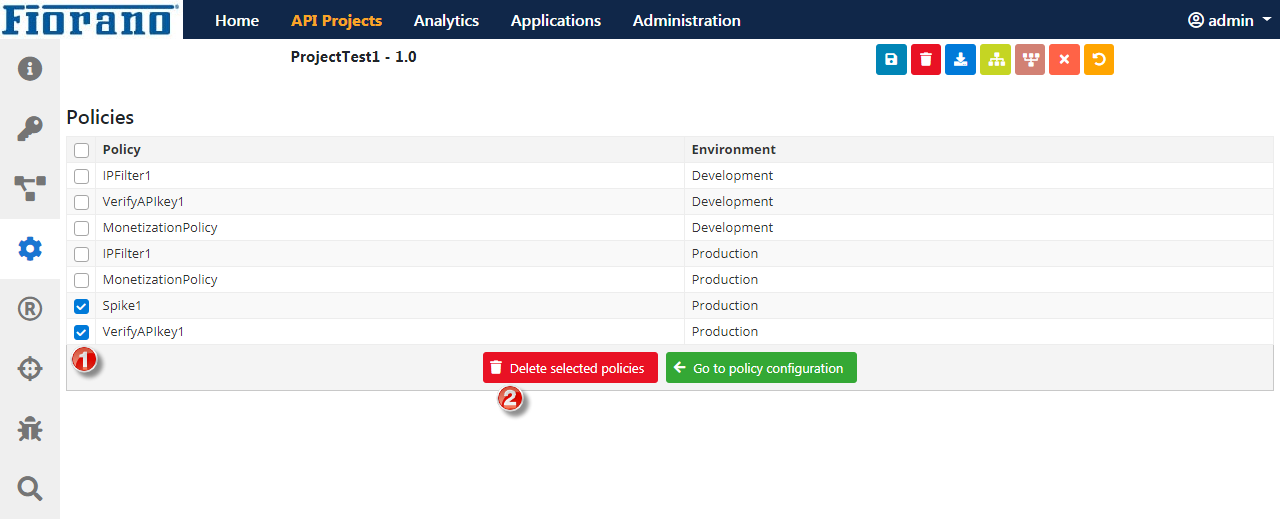
Configuring Rule
The Add/Edit Rule ![]() icon present in all Policy Configuration screens (right side of the Policy Configuration heading) helps to add new conditional checks if needed.
icon present in all Policy Configuration screens (right side of the Policy Configuration heading) helps to add new conditional checks if needed.
